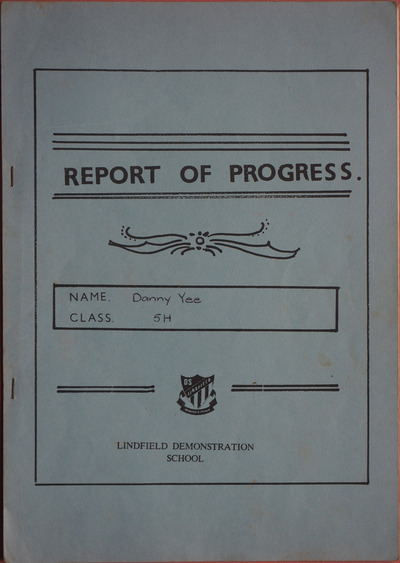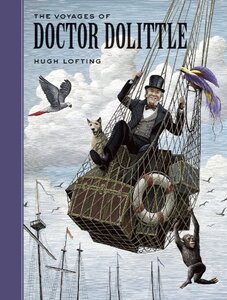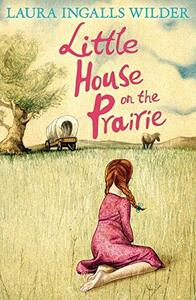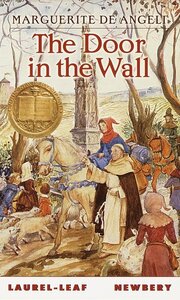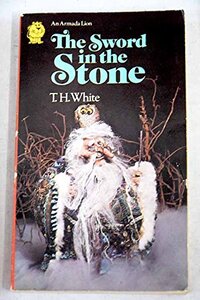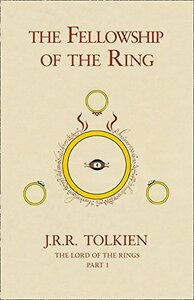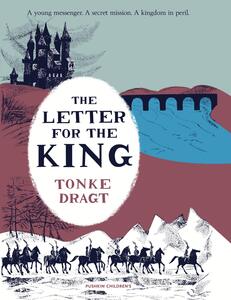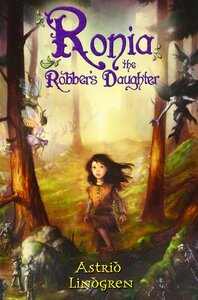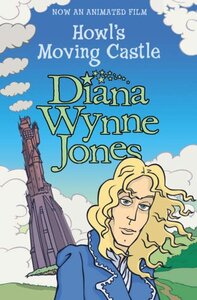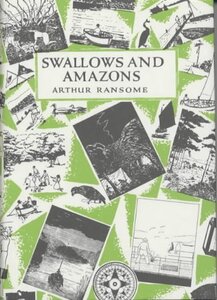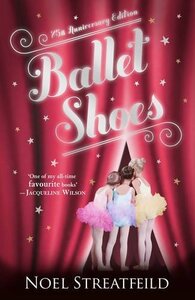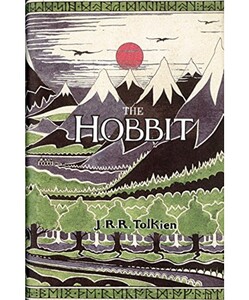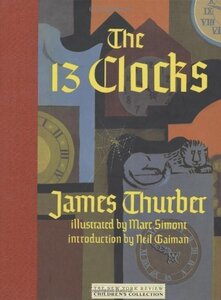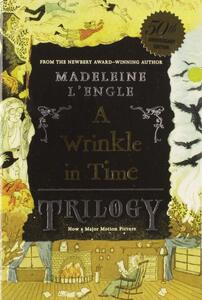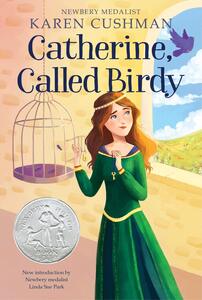Going through memorabilia, I found some old school reports. So here is a comparison of my "Report of Progress" from Year 5, in 1980 at what was then Lindfield Demonstration School, in Sydney, Australia, and my daughter Helen's "Annual Learning Journey Report" from Year 5, in 2022-2023 at Larkrise Primary School, in Oxford, England.
(more…)
Classics still dominate Helen's reading. Six months ago she read the remaining Anne of Green Gables books and then reread them all. And she's just reread The Lord of the Rings. Other classics include Hugh Lofting's Voyages of Dr Dolittle and The Story of Dr Dolittle (1920), Laura Ingalls Wilder's Little House in the Big Woods (1932), T.E. White's The Sword in the Stone (1938), Marguerite De Angeli's The Door in the Wall (1949), Tonke Dragt's Letter for the King (1962) and Secrets of the Wild Wood, Astrid Lindgren's Ronia the Robber's Daughter (1981), and Diana Wynne-Jones' Howl's Moving Castle (1986).
(more…)
The Oxfordshire library system has a lot of older books in storage (the "fiction reserve") - you won't find them on the shelves, but they're in the catalogue and you can reserve them for pickup. One of the nice things about these older books is that they still have stamped dates and card sleeves in their front covers. So we can see that this copy of Moonfleet was bought in 1972 for £1.50, and that it was being borrowed quite regularly between 2008 and 2010.

Coot Club and Moonfleet
|
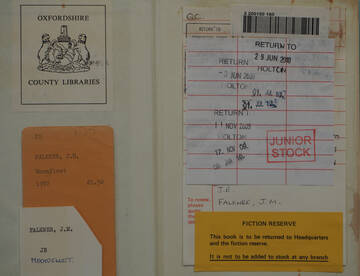
the front of Moonfleet
|
(more…)
Much of Helen's reading has consisted of older classics: Kenneth Grahame's The Wind in the Willows (1908), Arthur Ransome's Swallows and Amazons (1930), Noel Streatfeild's Ballet Shoes (1936), J.R.R. Tolkien's The Hobbit (1937), James Thurber's The 13 Clocks (1950), Gillian Avery's The Warden's Niece (1957), Madeleine l'Engle's A Wrinkle in Time (1962), Maurice Druon's Memoirs of Zeus (1964), Berlie Doherty's Children of Winter (1985), and Karen Cushman's Catherine, Called Birdy (1994). (She didn't read these in chronological order!)
(more…)
It must have been in 2013 or 2014, when I was still pushing Helen around in a stroller. Coming back from a friend's place on Campbell Rd, I got her safely across Cornwallis Rd at its junction with Rymers Lane, breathed a sigh of relief, and had the idea that a lot of problems would be solved if that junction were simply destroyed — or, to be more accurate, made impassable to motor traffic. At the time this just seemed like a fantasy.
(more…)
I had thought all my early childhood books were gone — sadly, at some point when I was a teenager I culled them as too childish, leaving only the "young adult" ones — but my sister saved our copy of Gerald Durrell's The Talking Parcel and has given it to Helen, who loves it. Reading that brought back memories, and I think this must have been one of the books I read many times as a child. (more…)
The details are unclear and the story may be legendary, but the great mathematician Alexander Grothendieck apparently once picked 57 as an example of a prime number. So a Grothendieck prime is a number that looks like it's prime but isn't. (more…)
We've had five days of remote learning so far, and everything seems to be running pretty smoothly. Helen's teachers and school have put in an impressive performance, especially given how little notice there was of whether schools would fully open. (The government delayed announcing a lockdown till the night before we were scheduled to reopen — and after many other schools had opened for a day.) (more…)
The default speed limit in built-up areas should be lowered to 20mph. There's plenty of evidence that this does change actual speeds, even without increased enforcement, and does reduce injuries and fatalities. It also reduces air pollution.

This limit can be raised to 30mph on stretches of road where that is appropriate, after a safety audit. This should require good visibility, sufficiently frequent crossing places for pedestrians, adequate (LTN 1/20 compliant) cycling infrastructure, and the absence of schools, parks, care homes or other destinations with large numbers of vulnerable users. (more…)
I finally made it to Summertown to visit Daunt Books, Oxford's latest bookshop. I figured I should take the opportunity before another lockdown happened, and it was also a chance for a pleasant cycle while the weather was still good. (more…)
Oxford for Cars is a new organisation set up to further the use of cars and other motor vehicles in Oxford. Oxford for Cars opposes any attempts to restrict or control the use of cars, and demands the removal of the barriers to them that exist across Oxford.
People like to drive. The existence of obstacles to driving wherever people want to is unacceptable, and cars should be prioritised instead of having space taken away from them for clunky buses and wobbly cyclists and trundling pedestrians. (more…)
Parcelforce tried to deliver something to me at work and left a card. Rather than paying for redelivery I decided to get some exercise cycling up to their depot in Langford Locks, on the NW outskirts of Kidlington. Rather than braving the Banbury/Oxford Rd and the A4260, which looked a bit hairy on Google Streetview, I cycled up the canal instead. (more…)
Getting Helen started on new books can be difficult, so it's a lot easier when she reads longer ones. She read Carole Satyamurti's retelling of the Mahabharata, which is 900 pages long and took her three weeks, and then launched straight into Stephen Fry's Mythos, which kept her out of mischief for six days. And now she's started on Gustav Schwab's Gods and Heroes of Ancient Greece. (more…)
Helen is rarely an avid reader. If she gets stuck into something she'll go through it eagerly, and she can reread books or entire series she loves, but otherwise she'll pretty much never sit down and start reading if there's playing to be done instead. Most of her reading is done in bed, before going to sleep or (in these days without school) on waking up.
The major constraint on her reading is scariness, which includes broader emotional stress - Hugh and Jonathan parting in Brother Dusty-Feet (which I had to read the last chapters of to her) was almost as bad as Pheasant being shot in The Animals of Farthing Wood (which she abandoned). Once she knows a book she's usually ok to read it again (though she's stalled at "Riddles in the Dark" in The Hobbit, which I've read to her). (more…)
Helen was not convinced that the two times table contains the same number of numbers as the seven times table. [A conversation she initiated herself going to bed, out of nowhere.] She understood the idea of using a bijection to show two collections have the same cardinality without counting them - I modelled it (conceptually, not physically) with smarties, buttons and a lot of string - and she could see how 2n <-> 7n works, but (not surprisingly) it just seemed wrong to her. Just wait till she finds out the rationals are countable! (more…)
Being involved with a school provides a good example of scaling problems. A lot of things that seem intuitive or simple at an individual level are difficult or complex at larger scales.
One key number is 30, the approximate number of children in a class (Helen's has ranged from 28 to 31). The other is 450, which is roughly the number of children in her school, a two-form entry primary school with an attached Early Years unit. (more…)
Helen has only done a tiny bit with foreign languages - German and Latin - since my last update on this a year ago. (more…)
I love visiting streetfront bookshops and buying books there, but sadly that's not possible at the moment. And a lot of the books I want simply aren't available even in well-stocked shops such as the Oxford Blackwells and Waterstones.
If I'm looking to buy a book online, first of all I check Amazon. This will alert me if there are different editions available, and give me some feel for the price, new or secondhand. But it's not often that Amazon has the best price, even if you're not avoiding it for ethical reasons! (more…)
It will be some time before reopening schools in England (for all children) is practical. They're just starting to do that in Australia, where infection rates are less than one hundredth of those here (with around 10 new cases a day instead of 5000, despite more aggressive testing). But we can think about how that should be done, once infection rates are much lower and a robust test-and-trace system is in place. (more…)
It's important to note that what we and many other parents and carers find themselves doing now is not traditional home schooling. It has been thrust upon us, with little warning, rather than being deliberately chosen, and we are in more or less stringent "lockdown", unable to go on outings or meet up with other families. And our school at least is providing solid remote learning support — home learning plans, videoed storytelling and singing assemblies, links to other resources, and so forth. (more…)

